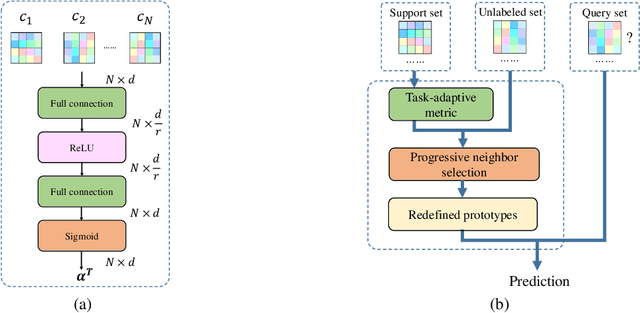Self-Adaptive Label Augmentation for Semi-supervised Few-shot Classification
Paper and Code
Jun 16, 2022



Few-shot classification aims to learn a model that can generalize well to new tasks when only a few labeled samples are available. To make use of unlabeled data that are more abundantly available in real applications, Ren et al. \shortcite{ren2018meta} propose a semi-supervised few-shot classification method that assigns an appropriate label to each unlabeled sample by a manually defined metric. However, the manually defined metric fails to capture the intrinsic property in data. In this paper, we propose a \textbf{S}elf-\textbf{A}daptive \textbf{L}abel \textbf{A}ugmentation approach, called \textbf{SALA}, for semi-supervised few-shot classification. A major novelty of SALA is the task-adaptive metric, which can learn the metric adaptively for different tasks in an end-to-end fashion. Another appealing feature of SALA is a progressive neighbor selection strategy, which selects unlabeled data with high confidence progressively through the training phase. Experiments demonstrate that SALA outperforms several state-of-the-art methods for semi-supervised few-shot classification on benchmark datasets.
 Add to Chrome
Add to Chrome Add to Firefox
Add to Firefox Add to Edge
Add to Edge